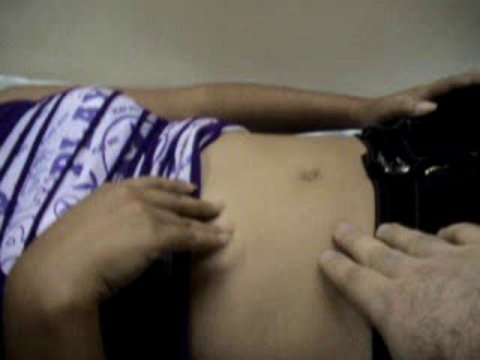Renal colic: Symptoms, remedies and proper diet
Severe pain, which may be accompanied by muscle spasms, is the most obvious sign of renal colic. Pain affects the urinary tract and is caused by stones or stones to pass through the ureter, the tube through which urine passes from the kidneys to the bladder. However, kidney stones are not always as obvious symptoms. The pain appears when calculations, agglomerations of mineral salts, form a compact block.
Renal colic: symptoms
The symptoms of renal colic may be varied. As noted, the acute pain is the most common symptom, but may also have other signs, such as blood in the urine, fever, excessive sweating, nausea, vomiting and hypotension. The pain caused by a kidney stone is very particular, in addition to being quite intense, also arrives accompanied by cramps that affect, above all, back and side of the kidneys. Pain can extend to the groin.
In case of renal colic, increases the need to urinate more often, and in so doing, a burning sensation is noticed. These symptoms occur in the moment when the calculation reaches the bladder.
Renal colic: remedies
Among the remedies for renal colic, remember that it is essential to drink plenty of fluids, in order to help dilute the substances present in the urine and prevent stone formation. The mineral water is the recommended drink. It can also help to eat yogurt with probiotic bacteria or lactic acid. In any case, we must review the diet in the presence of kidney stones; consult with the physician to establish more appropriate dietary guidelines since the appearance of the first symptoms.
Continuing with the remedies to alleviate muscle contractions, it is good to take a relaxing hot bath, with vasodilating effect to help reduce pain.
Renal colic: what to eat
What to eat to avoid annoying renal colic? For proper prevention of occurrence of stones or kidney stones, take high fiber foods. Special role for fruits and vegetables, such as celery, onion, parsley and artichokes. As for the fruit, the most desirable are rich in vitamin C. Ascorbic acid helps prevent stone formation.
However, it is important not to overdo the intake of vitamin C, as it may be just the opposite effect (hypervitaminosis). Similarly, milk and dairy products should be eaten in moderation. By following a few simple guidelines we will make the power supply one of our best allies for health care and, in this case, to prevent renal colic.
